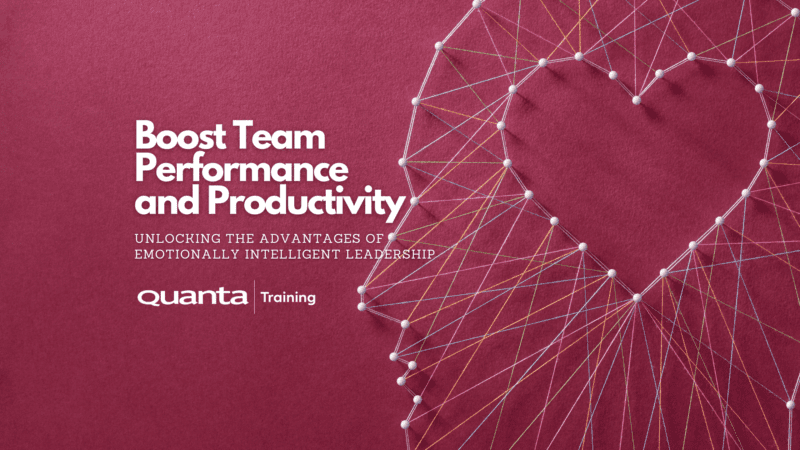Fundamentals of Business Analysis – including BCS Requirements Engineering
Course Code: BCS4FUN
Book

Basic Business Analysis and Requirements Engineering
This 5-day course focuses on learning practical business analysis skills that can be used in the workplace. Course delegates should be able to return to their working environments and work as an effective Business Analyst, immediately adding value and building relationships with project stakeholders.
The course focuses on learning how to do business analysis in the real world, in both agile and formal/waterfall environments. It also covers the whole of the syllabus for the BCS certificate in Requirements Engineering, meaning delegates have the option of taking this exam at the end of the course.
The course is very practical, with around 50% of training time devoted to individual and team exercises. During the course, delegates will attend daily stand-ups, produce a product vision and user stories, perform poker planning and interview product owners and other stakeholders. A simple case study is used throughout the course, enabling attendees to experience the life-cycle of a project and the deliverables produced.
Delegates work in teams simulating a real project and are encouraged to make short informal presentations at the end of some exercises to build their confidence and develop the skills of peer review.
Book a Private Event
If you require the content of this event tailored or have around 7 or more people to train it maybe better for you to host a Private Event, please get in touch to discuss this.
Get in touchDescription
Who is this course for
Our Fundamentals of Business Analysis course is suited to Business Analysts and Product Owners recently placed in the role or those who have been performing the role for some time but have never received any formal training.
It is suitable as an introduction for anyone thinking about moving into the Business Analysis role or for other change management professionals wanting to gain a more in-depth understanding of the role and responsibilities of the business analyst. The includes scrum masters, testers, developers and project managers.
The course is also suitable for experienced business analysts as it:
Provides a reinforcement session for those business analysts who have been doing the job for many years but have never received formal training.
Introduces consistent language and tools that can be adopted by teams who might currently use a mix of different techniques and deliverables.
Introduces Agile as a project life-cycle and contrasts with more formal (Waterfall) approaches.
Covers the BCS Requirements Engineering syllabus in full so is the start point for the BCS International Diploma in Business Analysis.
Purpose of the course
Our Fundamentals of Business Analysis course is suited to Business Analysts recently placed in the role or to Business Analysts who have been performing the role for some time but have never received any formal training. It is suitable as an introduction for anyone thinking about moving into the role or for other change management professionals wanting to gain a more in-depth understanding of the role and responsibilities of the Business Analyst.
You will learn how to
- Integrate into a project or team environment with an understanding of their role, key responsibilities and relationship with fellow project members
- Apply 80:20 and end-to-end thinking to deliver early business value and right first-time solutions
- Engage business stakeholders to define vision and scope for a project
- Engage business stakeholders to gather and document different types and levels of requirement
- Understand how Agile and Waterfall approaches affect the BA’s work
- Break-down complex business scenarios or problems into process and data models
- Document business and IT requirements as epics, user stories, features or catalogue entries
- Validate user stories or requirements against defined quality criteria
- Support prioritising, estimating and planning processes for an effective transition from requirements to solution
- Confidently present findings to business stakeholders and their project team
Prerequisites
There are no specific pre-requisites for this course, however delegates are expected to be working or have worked in a Business Analysis role or similar.Benefits for you as an individual
Basic Business Analysis and Requirements Engineering
Benefits for your organisation
Your delegates should return from this course with solid foundation in the basics of Business Analysis alongside a strong understanding of best practice in the following:
Requirements Elicitation
Requirements Analysis
Requirements Validation
Requirements Documentation
Requirements Management
The course covers a number of different modules. The course is run in the style of a project taking delegates from start-up through to delivery with elements of each module being covered when relevant, and also contrasting agile and formal approaches at each stage. Exam based topics are covered in more depth towards the end of the course.
Module 1- Introduction to the Business Analyst Role
The first section of the course introduces the role of the business analyst and positions them within agile and waterfall projects.
- What is a business analyst?
- The role of the business analyst.
- The key principles and rules of business analysis.
- Project approaches- Waterfall, Agile, Incremental.
Exercise 1.1- Delegates work in teams to define requirements for a 'simple' project.
Module 2- Starting a Project
The second section of the course introduces pre-project concepts of objectives, vision, scope and development of a business case. the different internal and external stakeholders involved in project work are introduced.
- The importance of understanding and defining objectives, vision and scope.
- Project stakeholders- scrum master, product owner, project sponsor, end-user, developer, UX (User Experience) expert.
- Business case basics.
- Sprint Zero in agile.
Exercise 2.1- Delegates define a list of measurable project objectives and initial scoping questions
Module 3- Agile Principles and Terminology
This section starts to explore the principle of agile in more depth. In particular, it attempts to create an agile mindset, introduces important terminology and techniques used, and starts to produce agile deliverables.
- Agile manifesto.
- Agile methods- overview of Scrum, XP.
- Reviews and retrospectives.
- MVP- Minimum Viable Product.
- Architectural and Functional Risk.
- Technical Debt.
- User role modellingand Personas.
Module 4- Requirements, User Stories and Features
This section looks at the need for capturing and documenting requirements and the different formats that can be used. Delegates develop an understanding of the different levels of requirement and techniques used to identify them.
- What are requirements and why they need to be defined?
- Writing epics, user stories and features.
- Defining acceptance criteria.
- Requirements catalogues.
- Functional and Non-Functional requirements.
- Requirements quality criteria.
Exercise 4.1- delegates review a set of user statements to categorise them into different types of requirement.
Exercise 4.2- delegates are asked to identify and define a set of functional requirements and non-functional requirements using different techniques including user stories.
Exercise 4.3- delegates review a set of user stories against the INVEST criteria.
Module 5- Interviewing, Workshops and Elicitation Techniques
This section looks at techniques for effective stakeholder interviewing. Additional elicitation techniques are introduced and related to knowledge types and how different techniques might be used at different stages of the project.
- Interviewing tips and techniques.
- Knowledge types.
- Other elicitation techniques (including workshops, scenarios, prototyping and protocol analysis)
Exercise 5.1- delegates decide on the elicitation techniques to use in a number of business situations.
Exercise 5.2- elicitation techniques (exam practice exercise)
Module 6- Delivering the Requirements
This section of the course explores how the requirements eventually become part of a solution and how the BA is involved in supporting this transition.
- Getting to solutions- the role of the BA beyond defining the requirements.
- Defining detailed requirements- how much detail do you need?
- Identifying business impact.
- Supporting business implementation.
- Estimating using planning poker.
- Prioritising features- based on business value, functional and architectural risk.
- Defining the MVP.
- Drawing a burn-up chart.
Exercise 6.1- delegates perform poker planning on user stories/requirements.
Exercise 6.2- delegates develop some detailed requirements using different formats/styles.
Exercise 6.3- delegates evaluate requirement priorities and discuss potential MVP.
Module 7- Business Analysis Tools and Techniques
This section of the course is explored at relevant points during the course when specific techniques that can support the business analyst come into play.
- Seeing the bigger picture- the importance of process modelling.
- Documenting a process using BPMN.
- Understanding and documenting data requirements using entity/class diagrams.
- Prototyping.
- Use cases.
Exercise 7.1- delegates practise BPMN techniques using a simple scenario.
Exercise 7.2- delegates work in teams to produce an 'as-is' swim-lane diagram from the case study.
Exercise 7.3- delegates work in teams to prototype screens from the case study.
Exercise 7.4- delegates work with the instructor to develop a data model for the case study.
Exercise 7.5- delegates identify and define attributes for the case study entities/classes.
Module 8- Requirements Engineering Techniques
This section formalises the components of requirements engineering and prepares delegates for the BCS Requirements Engineering exam.
- Production of a Requirements Catalogue.
- Requirements management- traceability and change control.
- Requirements management tools- CASE and packages that support agile development (e.g. Jira).
- Exam based revision exercises.
Additional Exam Information
Delegates interested in achieving a formal qualification can sit the BCS Requirements Engineering exam on the final afternoon of this course.
The format of the exam is one-hour multiple-choice. The exam is closed book (no materials can be referred to). Candidates need to achieve a minimum of 25 marks out of 40 to pass. Requirements Engineering is one of four modules required for the BCS International Diploma in Business Analysis.
Delegates will attempt the equivalent of 2 sample exam papers during the course.
Pre-Coursework
There is no pre-reading for this course.Get Started
Forget trawling through endless course catalogues – Find the training that’s right for you
Learn MoreLatest from our blog
Kanban and Agile: Bridging the Gap
Kanban and Agile: Bridging the Gap Quanta’s Kanban University Certified Trainer Steve Church explores the way in which Agile and…
Read More
How a Ballerina could move into Cybersecurity
Jason Ford, Quanta Cybersecurity and IT Trainer talks about the limitations in Cybersecurity Training courses. Jason discusses a safe and…
Read More
Boost Team Performance and Productivity: Unlocking the Advantages of Emotionally Intelligent Leadership
Quanta People Development and Leadership Trainer, Giles Collins outlines the key elements of Emotionally Intelligent Leadership and how it impacts…
Read More



